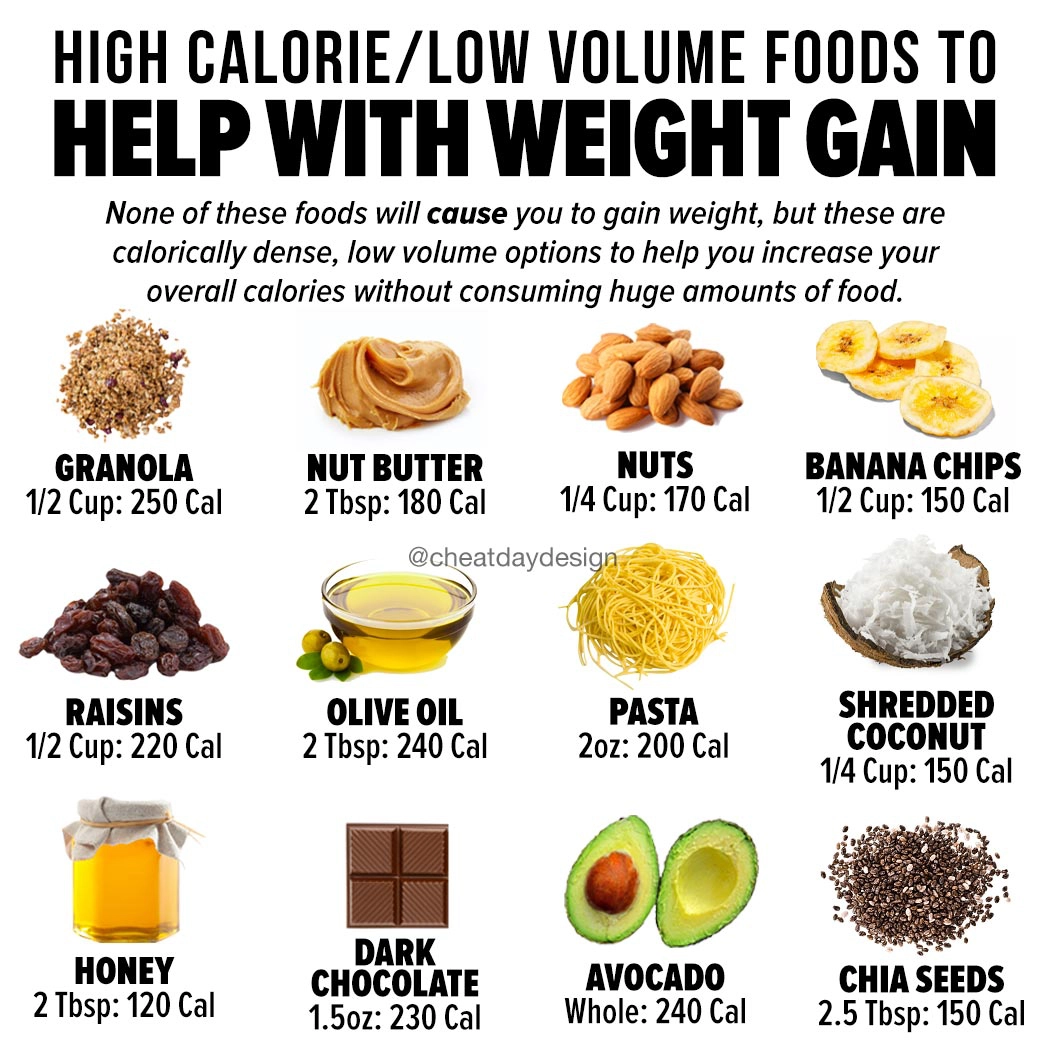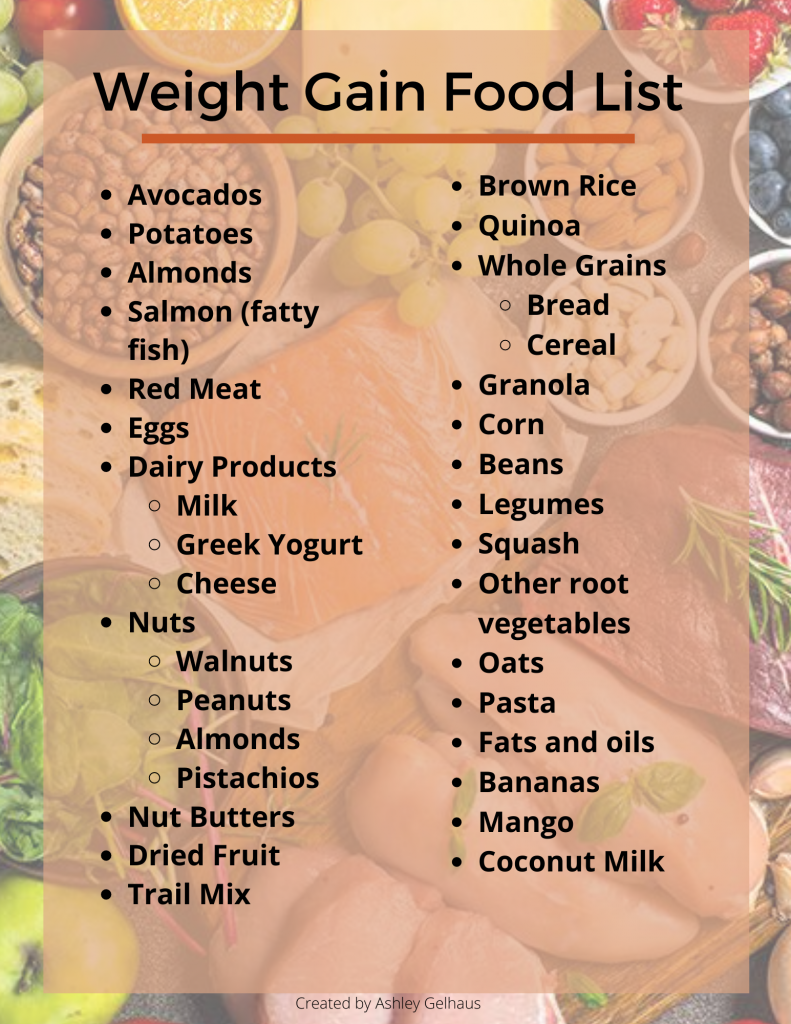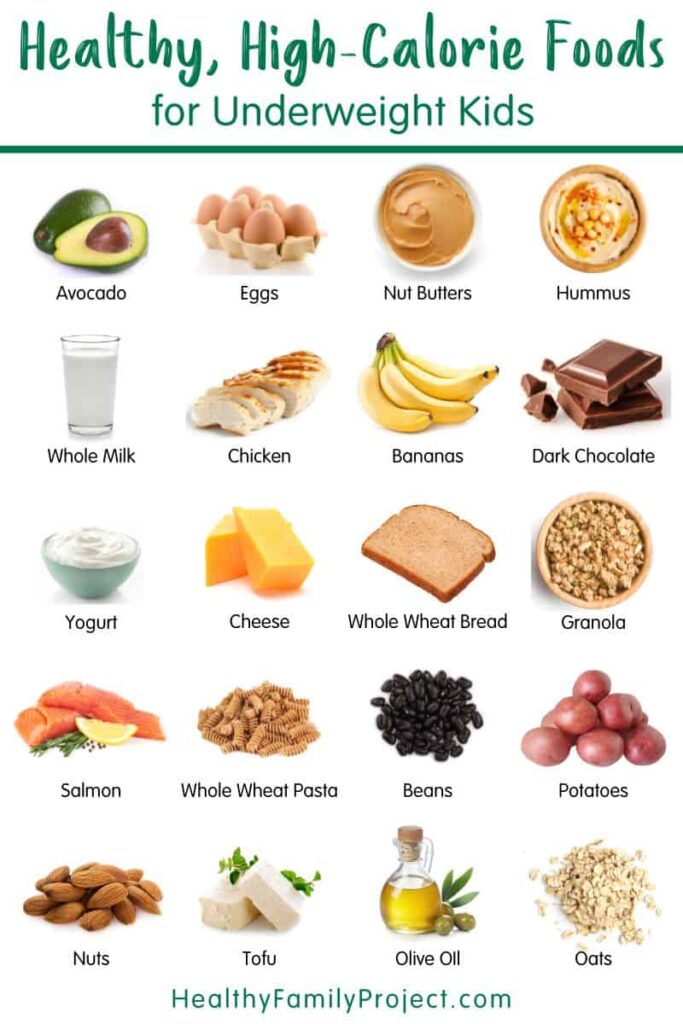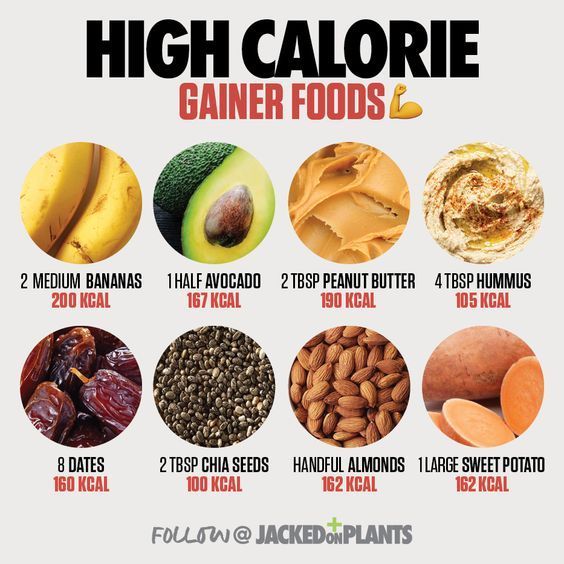If you’re looking to put on some weight but you’re not keen on indulging in high-calorie foods, you’re in luck! This article will guide you through effective strategies and techniques to gain weight without relying on calorically dense options. Whether you have dietary restrictions or simply want to take a healthier approach to gaining weight, we’ve got you covered. So, let’s explore alternative methods that will help you achieve your weight gain goals without sacrificing your overall well-being.

Increase Calorie Intake
Consume more frequent meals
When trying to gain weight, it’s important to increase your calorie intake. One way to do this is by consuming more frequent meals throughout the day. Instead of sticking to the traditional three meals a day, try splitting your meals into smaller, more frequent portions. This will help increase your overall calorie intake without feeling overly full during meal times.
Include healthy fats in your diet
Adding healthy fats to your diet is another effective way to increase your calorie intake. Healthy fats, such as avocados, nuts, and olive oil, are packed with nutrients and also provide a concentrated source of calories. Incorporating these fats into your meals and snacks can help boost your caloric intake while still providing your body with essential nutrients.
Opt for nutrient-dense foods
Choosing nutrient-dense foods is crucial when trying to gain weight in a healthy way. Nutrient-dense foods are those that provide a high amount of nutrients relative to their calorie content. Examples of nutrient-dense foods include fruits, vegetables, whole grains, lean proteins, and dairy products. By selecting these foods, you can ensure that you’re getting the necessary nutrients while also increasing your calorie intake.
Add protein-rich foods
Protein is an essential nutrient for muscle growth and repair, making it an important component of a weight gain strategy. Including protein-rich foods in your diet is not only beneficial for building muscle but can also help increase your calorie intake. Foods like lean meats, fish, poultry, eggs, dairy products, and legumes are excellent sources of protein that can be incorporated into your meals and snacks.
Choose whole-grain carbohydrates
Carbohydrates are an important macronutrient that provides fuel for your body. When trying to gain weight, it’s important to choose quality sources of carbohydrates, such as whole-grain options. Whole-grain carbohydrates, including whole wheat bread, brown rice, and oats, are higher in fiber and nutrients compared to their refined counterparts. Opting for whole-grain carbohydrates will help ensure that you’re consuming nutrient-dense calories that support healthy weight gain.
Strategic Meal Planning
Create a meal schedule
Creating a meal schedule can help establish a routine and ensure that you’re consistently meeting your calorie goals. Plan out your meals in advance and set specific times for each meal and snack. This will help you stay organized and prevent skipping meals, which can negatively impact your weight gain efforts.
Plan balanced meals
When planning your meals, it’s important to focus on balance. Include a variety of food groups, such as lean proteins, whole grains, fruits, vegetables, and healthy fats. This will ensure that you’re getting a wide range of nutrients to support overall health and weight gain. Aim to include a source of protein, a serving of carbohydrates, and a serving of fats in each meal.
Prioritize meals before workouts
If you’re engaging in regular physical activity, it’s important to prioritize meals before your workouts. Consuming a meal or snack that includes both protein and carbohydrates before exercising can help provide your body with the necessary fuel to perform at its best. It also helps prevent muscle breakdown and provides your body with nutrients needed for recovery and growth.
Incorporate healthy snacks
In addition to your main meals, incorporating healthy snacks between meals can help increase your calorie intake. Choose nutrient-dense snacks that are high in calories, such as nuts, trail mix, yogurt, or protein bars. These snacks can be easily prepared in advance and carried with you throughout the day, ensuring that you have something readily available to munch on when hunger strikes.
Consider liquid calories
Liquid calories can be a helpful tool when trying to increase your calorie intake. Adding liquid calories to your diet can be more convenient for some individuals, especially those with busy schedules or smaller appetites. Consider incorporating calorie-dense beverages like smoothies, shakes, or homemade protein drinks into your meal plan. These liquids can be packed with nutrients and easily consumed on the go.
Mindful Eating Habits
Eat slowly and chew thoroughly
One important aspect of mindful eating is taking the time to eat slowly and chew your food thoroughly. This allows your body to properly digest and absorb the nutrients from your meals. By eating slowly, you’re also more likely to recognize when you’re full and avoid overeating, which can be a challenge when trying to gain weight.
Avoid distractions during meals
To practice mindful eating, it’s important to eliminate distractions during meal times. Put away your phone, turn off the TV, and focus solely on your meal. By paying attention to the flavors, textures, and smells of your food, you’ll be more in tune with your body’s hunger and fullness signals. This can help prevent mindless eating and allow you to better control your portion sizes.
Listen to your body’s hunger cues
Listening to your body’s hunger cues is crucial when trying to gain weight. Pay attention to your body’s signals and eat when you’re hungry. Ignoring your hunger cues can lead to undereating, making it harder to meet your caloric goals. Additionally, be mindful of emotional eating and try to differentiate between true physical hunger and emotional cravings.
Practice portion control
While it’s important to increase your calorie intake, practicing portion control is still crucial. Eating too much can lead to unwanted weight gain in the form of fat rather than muscle. Aim to have balanced, portioned meals that provide enough calories to support weight gain without going overboard. Pay attention to your body’s fullness signals and stop eating when you feel satisfied.
Avoid skipping meals
Skipping meals may seem like a way to save calories, but it can actually hinder your weight gain efforts. Consistency is key when it comes to increasing calorie intake and supporting healthy weight gain. Make it a priority to have regular, balanced meals throughout the day, even on busy days or when you’re not particularly hungry. This will help ensure that you’re consistently meeting your caloric goals and providing your body with the fuel it needs.
Physical Activity and Exercise
Focus on strength training
When trying to gain weight, focusing on strength training exercises is essential. Strength training helps build muscle mass, which contributes to healthy weight gain. Incorporate exercises like weightlifting, bodyweight exercises, and resistance training into your workout routine. Aim to gradually increase the weight and intensity of your workouts to challenge your muscles and promote growth.
Engage in resistance exercises
Resistance exercises, such as using resistance bands or machines, are another effective way to stimulate muscle growth. These exercises target specific muscle groups and help increase muscle size and strength. Incorporate exercises like bicep curls, tricep dips, squats, and lunges into your workout routine to target different muscle groups and promote overall muscle development.
Include compound movements
Compound movements are exercises that involve multiple muscle groups and joints working together. Including compound movements in your workouts helps maximize muscle recruitment and can result in more efficient muscle growth. Examples of compound exercises include deadlifts, bench presses, shoulder presses, and squats. These exercises engage multiple muscle groups simultaneously, allowing for greater muscle stimulation and growth.
Limit excessive cardio
While cardio exercises have numerous health benefits, excessive cardio can make it more difficult to gain weight. Cardio exercises burn calories, which can create a caloric deficit if not properly balanced with calorie intake. Focus on moderate amounts of cardio, such as brisk walks or light jogs, to support cardiovascular health without interfering with your weight gain goals.
Allow adequate recovery
Allowing your body enough time to recover between workouts is crucial for muscle growth and overall health. When you engage in strength training exercises, you create micro-tears in your muscles. These tears need time to repair and rebuild, which is when muscle growth occurs. Aim for at least one or two rest days per week to give your body the time it needs to rest, recover, and grow.

Optimizing Nutrient Absorption
Digestive enzymes supplementation
Digestive enzymes are substances that help break down food and optimize nutrient absorption. Supplementing with digestive enzymes can be beneficial for individuals who struggle with digestive issues or have trouble absorbing nutrients. These enzymes help your body break down proteins, fats, and carbohydrates, allowing for better nutrient absorption and utilization.
Consume probiotic-rich foods
Probiotics are beneficial bacteria that promote a healthy digestive system and enhance nutrient absorption. Including probiotic-rich foods in your diet, such as yogurt, sauerkraut, kimchi, and kefir, can help improve gut health and optimize nutrient absorption. Probiotics support a healthy balance of gut bacteria, which is essential for proper digestion and absorption of nutrients.
Manage stress levels
Stress can have a negative impact on digestion and nutrient absorption. When you’re stressed, your body releases stress hormones that can interfere with the digestive process. Finding effective ways to manage stress, such as exercise, meditation, or hobbies, can help optimize nutrient absorption and support overall health.
Stay hydrated
Hydration is important for overall health and plays a role in nutrient absorption. Drinking an adequate amount of water throughout the day helps keep your digestive system functioning properly and optimizes nutrient absorption. Aim to drink at least 8 glasses of water per day and increase your intake if you engage in intense physical activity or live in a hot climate.
Ensure adequate sleep
Getting enough quality sleep is crucial for optimal body function, including nutrient absorption. During sleep, your body repairs and rejuvenates itself, allowing for better absorption of nutrients. Aim for 7-9 hours of sleep per night to support your body’s natural healing processes and optimize nutrient absorption.
Eat Energy-Dense Foods
Include dried fruits and nuts
Dried fruits and nuts are excellent options for increasing your calorie intake. They are calorie-dense and provide a good balance of healthy fats, carbohydrates, and proteins. Incorporating dried fruits and nuts into your meals and snacks can help boost your overall calorie intake in a healthy and convenient way.
Choose avocados and olives
Avocados and olives are two examples of energy-dense foods that are packed with healthy fats. These fats provide a concentrated source of calories and can significantly increase the caloric content of a meal. Adding slices of avocado to sandwiches, salads, or smoothies, or including olives in your dishes, can help increase your overall calorie intake while providing essential nutrients.
Opt for full-fat dairy products
Full-fat dairy products, such as whole milk, yogurt, and cheese, are an excellent source of calories and nutrients. Choosing full-fat options over low-fat or skim versions can help increase your calorie intake without sacrificing nutritional value. Incorporate full-fat dairy products into your meals and snacks, or enjoy them on their own as a calorie-dense snack.
Incorporate smoothies and shakes
Smoothies and shakes are a convenient and delicious way to increase your calorie intake. By blending nutrient-dense ingredients like fruits, vegetables, protein powder, nut butter, and milk, you can create a calorie-dense beverage that can be consumed on the go. Adding ingredients like oats, yogurt, or avocado can further boost the calorie content of your smoothies and shakes.
Add nutritious toppings to meals
Another simple way to increase your calorie intake is by adding nutritious toppings to your meals. Sprinkle nuts, seeds, or dried fruits on top of salads, yogurts, or oatmeal for added calories and nutrients. Drizzle olive oil or nut butter on top of vegetables or toast, or sprinkle grated cheese on your dishes to increase their caloric content.

Make Healthy Food Swaps
Replace refined carbs with whole grains
One effective way to make healthier food choices is by replacing refined carbohydrates with whole grains. Refined carbs, such as white bread, white rice, and sugary cereals, lack nutrients and are quickly digested, leading to blood sugar spikes and crashes. Opt for whole-grain alternatives like whole wheat bread, brown rice, quinoa, and whole-grain cereals to provide your body with more fiber and nutrients.
Choose lean red meat over processed meats
When it comes to protein sources, choosing lean red meat over processed meats is a healthier choice. Processed meats, such as sausages, bacon, and deli meats, are often high in additives, preservatives, and unhealthy fats. Opt for lean cuts of red meat like steak or ground beef to provide your body with a high-quality source of protein, iron, and other important nutrients.
Swap sugary drinks for healthy alternatives
Sugary drinks like soda, juices, and energy drinks are rich in empty calories and can negatively impact your weight gain efforts. Replace these sugary beverages with healthier alternatives, such as water, herbal tea, or homemade fruit-infused water. Not only will you reduce your overall sugar consumption, but you’ll also hydrate your body and support overall health.
Select natural nut butters
When choosing spreads for your toast, opt for natural nut butter options without added sugars, hydrogenated oils, or preservatives. Peanut butter, almond butter, or cashew butter are excellent sources of healthy fats and can add extra calories to your meals or snacks. Spread them on whole-grain bread, mix them into smoothies, or use them as a dip for fruits and vegetables.
Opt for homemade sauces and dressings
Commercial sauces and dressings often contain unhealthy additives, preservatives, and high amounts of added sugar or unhealthy fats. Making your own sauces and dressings allows you to control the ingredients and make healthier choices. Use ingredients like olive oil, vinegar, herbs, and spices to create flavorful and nutritious homemade sauces and dressings that can enhance the taste of your meals while supporting your weight gain goals.
Effective Snacking Strategies
Consume high-calorie snacks
Choosing high-calorie snacks can help increase your calorie intake throughout the day. Opt for snacks that are nutrient-dense and rich in healthy fats, such as nuts, seeds, and trail mix. These snacks provide a good balance of macronutrients and can be easily carried with you for a quick calorie boost when needed.
Eat protein-rich snacks
Snacks that are high in protein can help support muscle growth and provide a steady source of energy throughout the day. Greek yogurt, cottage cheese, protein bars, or hard-boiled eggs are excellent protein-rich snack options. These snacks can be consumed between meals to help meet your daily calorie and protein goals.
Include healthy carbohydrates
Incorporating healthy carbohydrates into your snacks can provide your body with a quick energy source and aid in weight gain. Fresh fruits, whole-grain crackers, or energy bars made from natural ingredients are good options for healthy carbohydrate-rich snacks. These snacks can be enjoyed before or after workouts, or when you need a quick energy boost during the day.
Try energy bars and granola
Energy bars and granola are convenient, grab-and-go snacks that can be calorie-dense and packed with essential nutrients. Look for options that are made from natural ingredients, without added sugars or artificial additives. These snacks are a great choice for when you’re on the move and need a quick snack to keep your energy levels up.
Prepare homemade trail mix
Homemade trail mix is a versatile and customizable snack option that can be tailored to your taste preferences and nutritional needs. Mix together a variety of nuts, seeds, dried fruits, and even a sprinkle of dark chocolate for a calorie-dense snack that provides a good balance of macronutrients. Portion out individual servings of trail mix for easy, on-the-go snacking.

Track Your Progress
Monitor weight and measurements
Tracking your weight and measurements can help you assess your progress and ensure that you’re moving towards your weight gain goals. Weigh yourself regularly and take measurements of your waist, hips, arms, and legs to track any changes. Remember, weight gain should be gradual and healthy, so monitor your progress over time and make adjustments to your diet and exercise plan as needed.
Keep a food diary
Keeping a food diary can be a helpful tool to track your daily caloric intake and identify any gaps in your nutrition. Record everything you eat and drink throughout the day, including portion sizes. This will give you a better understanding of your overall calorie intake and help you make adjustments to ensure you’re meeting your weight gain goals.
Track daily caloric intake
Calculating and tracking your daily caloric intake is essential when trying to gain weight. Use online calorie calculators or consult with a registered dietitian to determine your specific caloric needs. Once you have your target caloric intake, track your food and beverage consumption to ensure you’re meeting your goals. Adjust your portion sizes or add calorie-dense foods to your diet as needed.
Adjust dietary habits accordingly
Regularly assess and adjust your dietary habits based on your progress and individual needs. If you’re not gaining weight as expected, consider increasing your caloric intake or modifying your macronutrient ratios. On the other hand, if you’re gaining weight too quickly or not feeling energized, you may need to make adjustments to your portion sizes or food choices. Listen to your body and make changes accordingly.
Set realistic goals
Setting realistic goals is crucial when it comes to gaining weight in a healthy and sustainable way. Remember that healthy weight gain takes time and patience. Set achievable goals that align with your body’s natural capabilities and your overall health. Consult with a registered dietitian or nutritionist to help you set realistic goals based on your unique circumstances and needs.
Seek Professional Guidance
Consult a registered dietitian/nutritionist
If you’re struggling to gain weight or have specific dietary concerns, consulting with a registered dietitian or nutritionist can be extremely beneficial. These professionals can provide personalized guidance, assess your specific dietary needs, and create a tailored meal plan to help you reach your weight gain goals. They can also provide ongoing support and make adjustments to your plan as needed.
Understand your specific needs
Every individual has unique nutritional needs when it comes to weight gain. Factors such as age, gender, activity level, metabolism, and any underlying medical conditions should be taken into consideration. By understanding your specific needs, a registered dietitian or nutritionist can help you create a plan that is tailored to your individual requirements.
Receive personalized advice
Working with a registered dietitian or nutritionist allows you to receive personalized advice that is specific to your goals and needs. They can help you navigate any challenges you might face when trying to gain weight and provide practical solutions that align with your lifestyle. Their expertise ensures that you’re receiving the most accurate and up-to-date information.
Create a tailored meal plan
A tailored meal plan created by a registered dietitian or nutritionist can be an invaluable tool when it comes to gaining weight. They will consider your individual needs, preferences, and dietary restrictions to create a plan that supports healthy weight gain while still providing a balanced, nutrient-rich diet. A meal plan takes the guesswork out of meal planning and ensures that you’re meeting your calorie and nutrient goals.
Receive ongoing support
Professional guidance provides ongoing support throughout your weight gain journey. Your registered dietitian or nutritionist can help you stay accountable, provide regular check-ins, and answer any questions or concerns you may have. Their support and expertise can help you stay on track and overcome any obstacles that may arise along the way.
In conclusion, gaining weight in a healthy and sustainable way requires a comprehensive approach that includes increasing calorie intake, strategic meal planning, mindful eating habits, physical activity and exercise, optimizing nutrient absorption, incorporating energy-dense foods, making healthy food swaps, effective snacking strategies, tracking progress, and seeking professional guidance. By implementing these strategies and working with a registered dietitian or nutritionist, you can achieve your weight gain goals while supporting your overall health and well-being.
